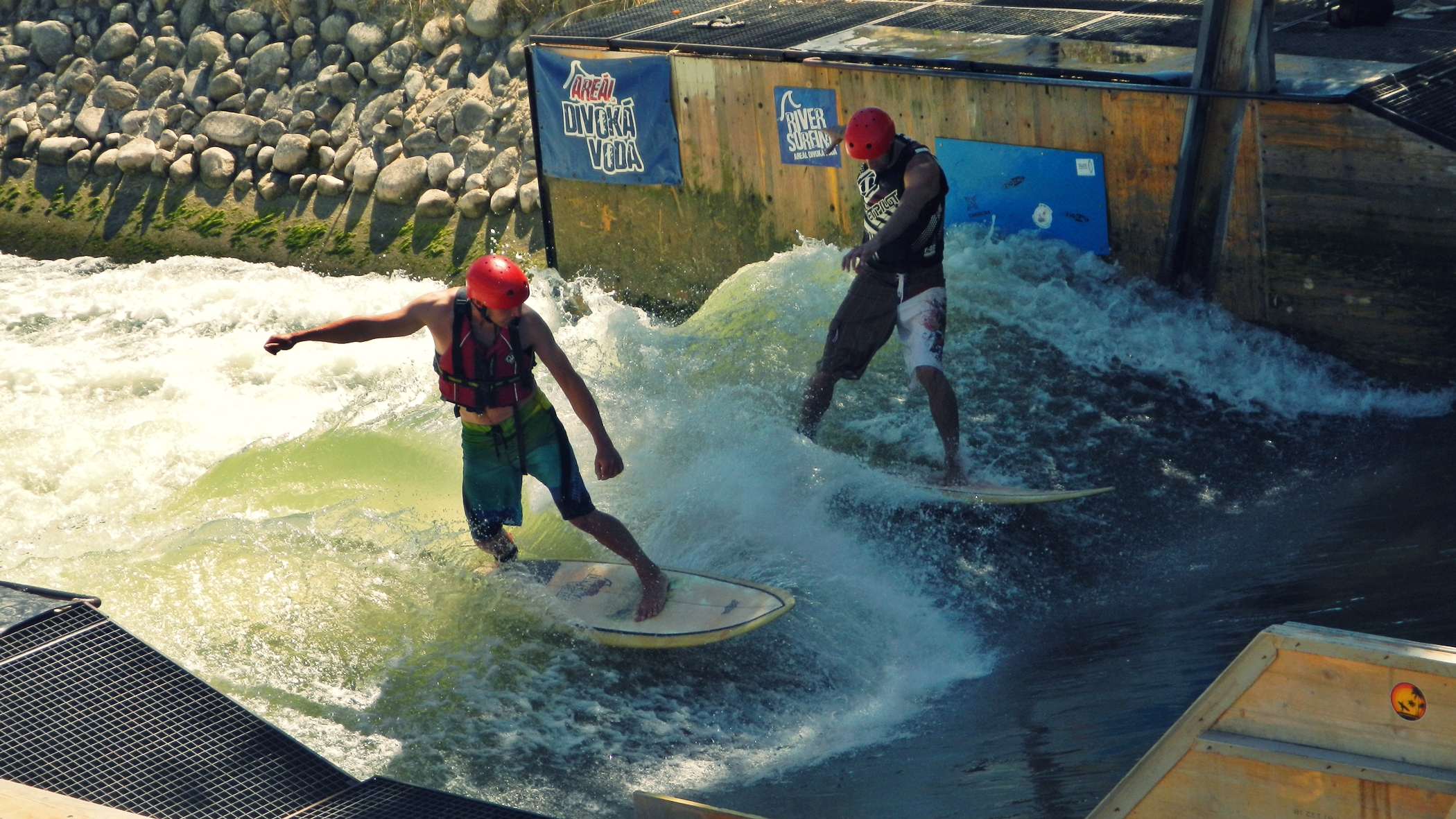I’m a landlocked surfer. It means that I live in a place far away from the sea. To get to do what I love, I have to travel to a strange & unfamiliar place. This article is about sharing my thoughts on how it feels.
The most common reaction I get when I try to explain it to other surfers?
“Dude that sucks! “
But that is the path I’ve chosen and despite all the struggles, I’m finally finding some positives in it too.
So what’s the whole deal? Let’s start from the beginning…
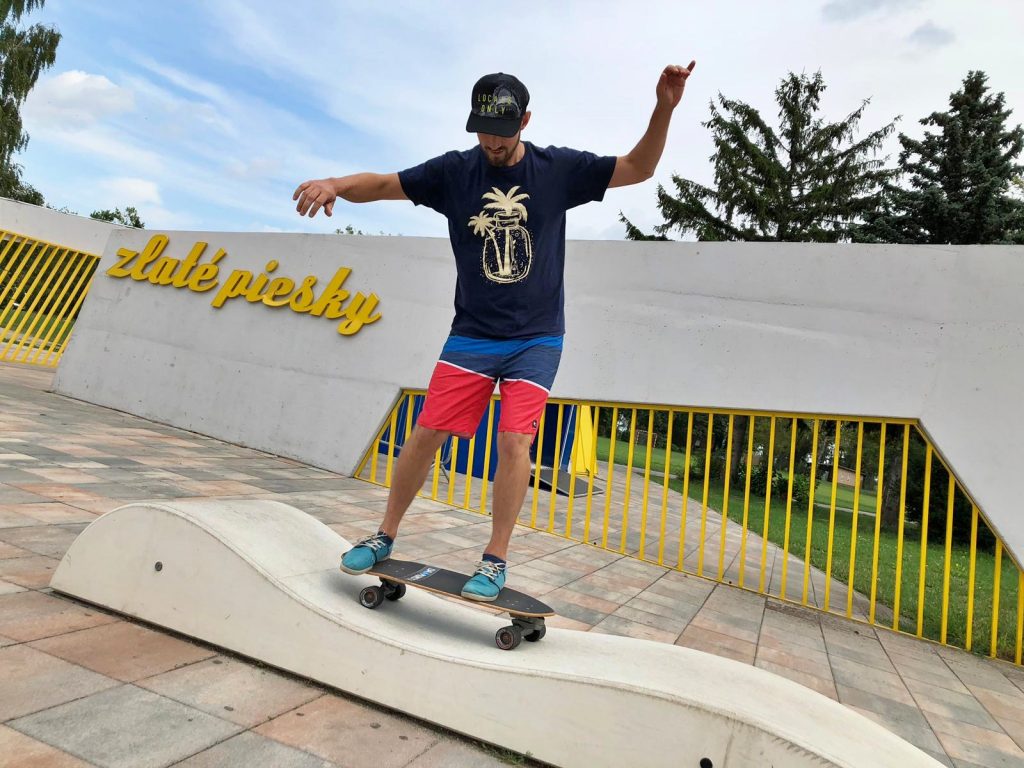
How to become a landlocked surfer
There are two options:
- You were born in a landlocked country and started surfing later, unable (or unwilling) to move closer to the ocean because of family, career, finance & other reasons. Those are the real landlocked surfers who grew up without regular access to the waves.
- You were a normal surfer, but the circumstances in your life lead you to relocate away from the ocean. Those surfers are surely going through some cold-turkey periods, but most of them are fine because they can always visit their home spots where they’ll still be considered as locals.
- There are also semi-landlocked surfers who have some kind of access to the sea, but the surfing opportunities are very limited. For example in Germany, Texas or Sweden.
While most of us understand that it’s not always possible to live the entire life close to the sea, the common question is:
Why are these people still following surfing while being so far away from it?
Someone could say it’s better to find a new passion in snowboarding or playing golf than being a wave-deprived zombie. But anyone who ever experienced the addictive love-hate relationship with surfing is going to confirm that just one wave ridden is better than a full day of golf or other dry land activities. Once you’re hooked, there’s no substitute.
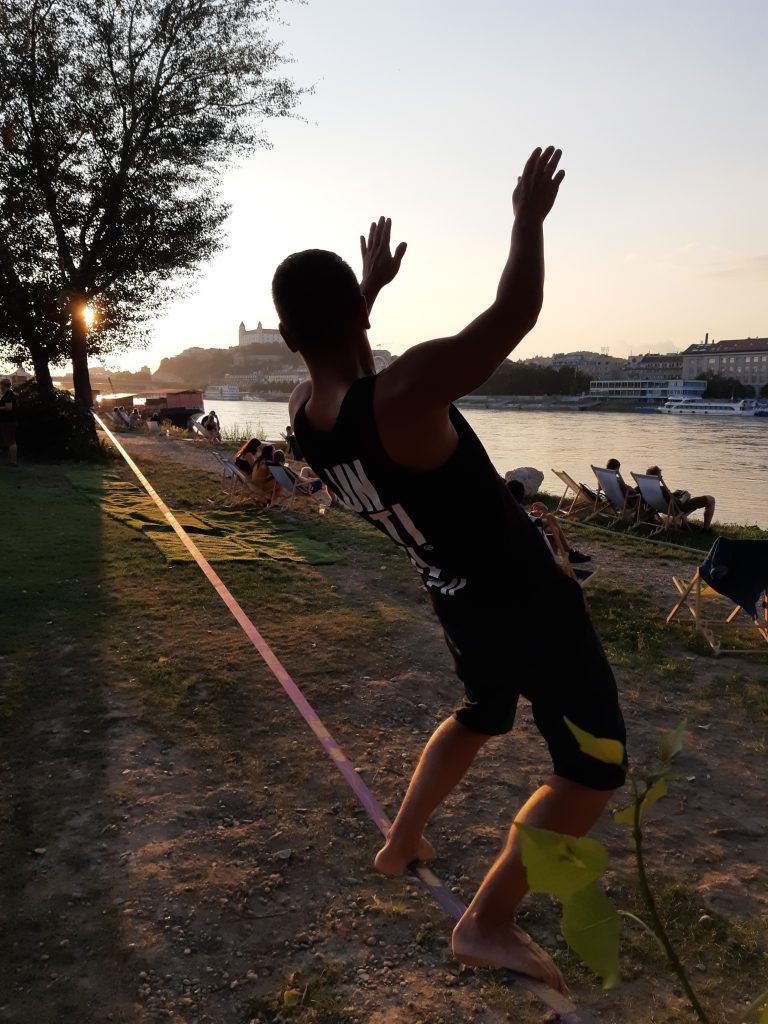
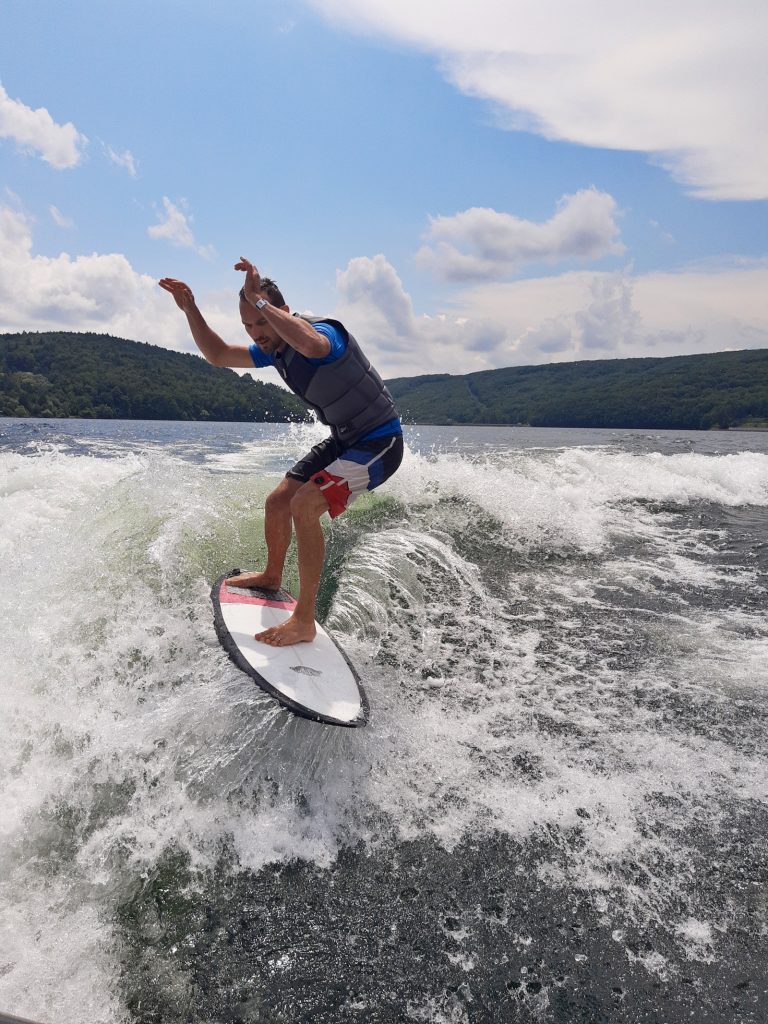
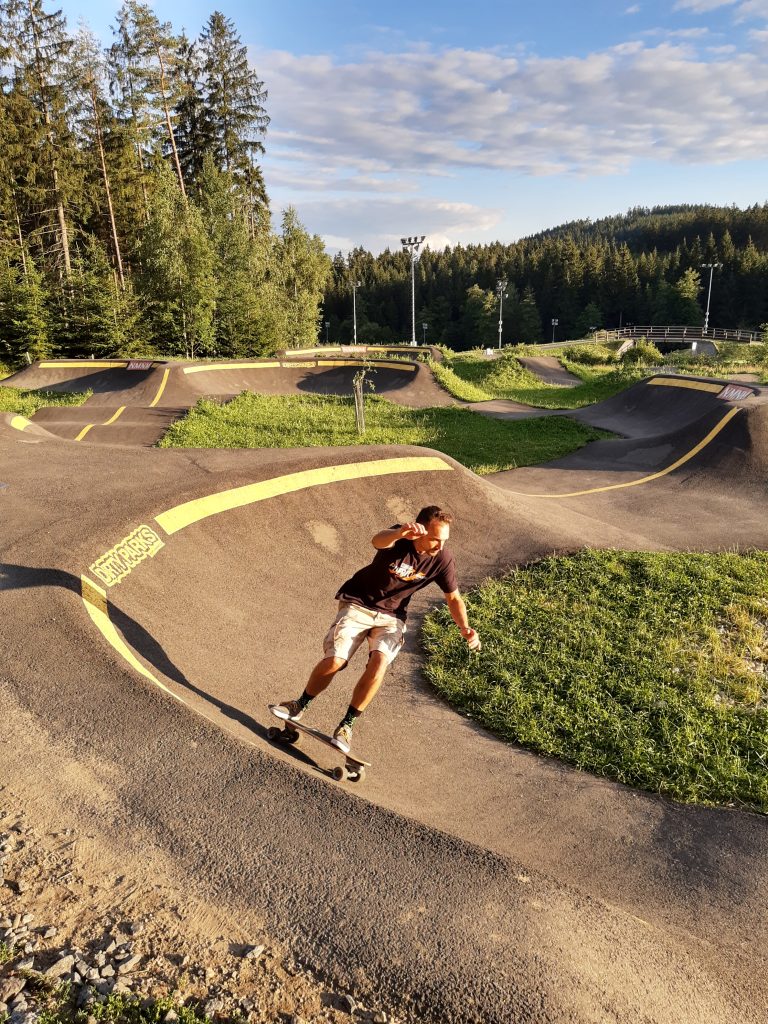
The extra miles
So even if we are landlocked, we’re going to continue surfing. Some of us may find other passions in time, but deep down we’ll always be drawn to the ocean. That creates the first problem of landlocked surfers – excessive travel.
There are few other people on the planet who are willing to drive 15 hours just to surf a couple of mushy 2ft waves in freezing cold water. Then sleep in the car before driving back on Sunday.
Or spend their entire savings each year on trips to tropical surf destinations. Ignoring any cheap travel offers to regular non-surfing places like Egypt, Dubai, Croatia or Zanzibar – that are usually available for half the price.
Carefully planning every family vacation around possible surfing destinations in the right seasons. Then explaining to your dear that it’s not important to see all the UNESCO heritage sites tomorrow because there is a swell coming.
Then there’s the hidden cost of how much more we spend on surfboards and those hefty airline charges… just to have them destroyed by the airport personnel. A traveling surfer usually needs a new surfboard twice faster than a settled local. And not just that, you need a full wardrobe of different wetsuits depending on the destinations you travel.
All of this traveling takes a lot of commitment to surf.
But the worst is waiting for us at the beach.
You get no respect
As a landlocked surfer, the struggle doesn’t end when you leave the airport or check in at the hotel, not even when you finally catch your first wave.
The thing is, you’ll never be a local.
You’ll never be fully welcome.
Localism is a strange phenomenon in surfing. It was probably invented to protect the innocent local kids or others from the raiding, disrespectful visitor crowds. Its main purpose was to enforce some order and rules in the ocean jungle.
But as with every other “ism” in human history, localism got widely out of control, and it has now grown into a kind of surfing racism.
Nowadays, a lot of the local surfers believe they have an exclusive right to surf certain waves (usually the best ones) just because they were born or live somewhere nearby. And for some reason, this xenophobia is tolerated or accepted by the vast majority of surf crowds. Sometimes even enforced with violence.
It would take another article to search for the reasons of localism, and whether it is justified. The truth is that some tourist surfers deserve a slap for their disrespectful behavior. But why letting all the others suffer? Is landlocked surfer automatically guilty? Or is it just because there’s too many of us, and we’re simply taking each other’s space?
Anyways, to be a landlocked surfer, it means that it doesn’t matter how much respect you give to the locals. That you always humbly sit in the back of the pecking order on the lineup, you even give up waves they drop in on you – without arguing. Or that you bring all your hard-earned cash to spend in their small business community, and you even clean their beaches from their rubbish. Even if you would be a surfing Jesus, you’ll always get bad looks, disrespect and sometimes even get sent out of the water.
Just because you were born somewhere else.
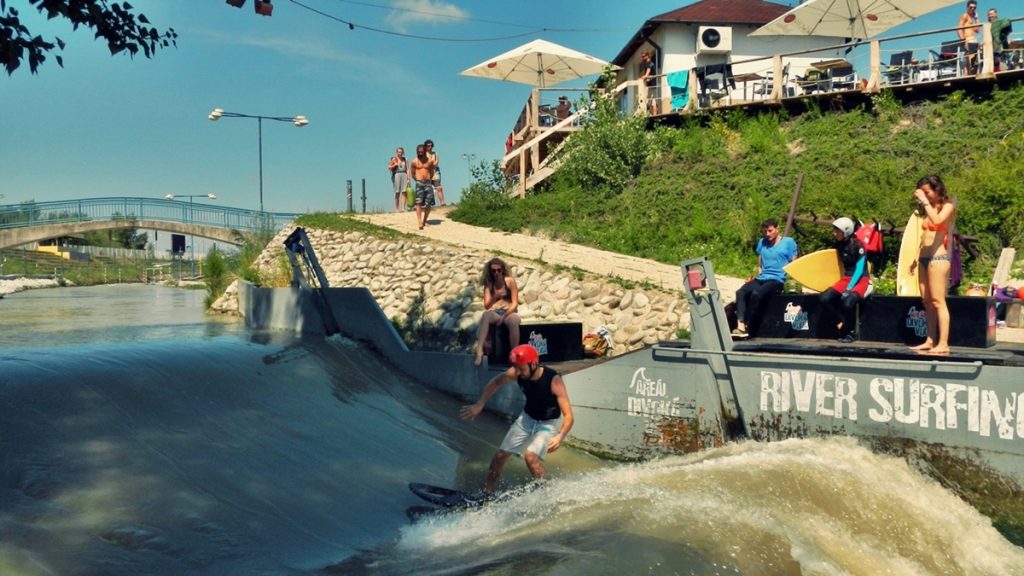
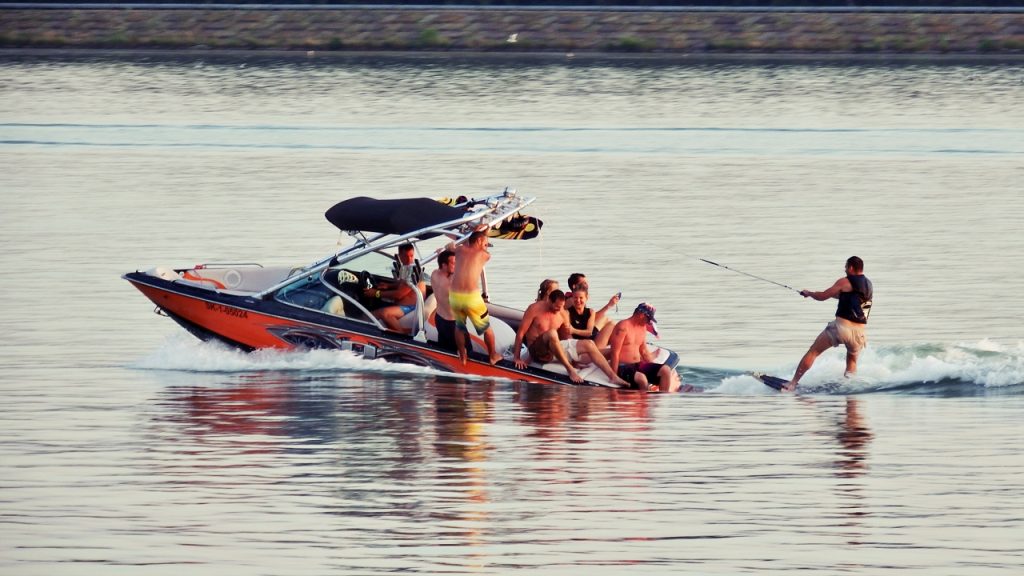
So are there any positives for landlocked surfers?
It takes a bit of mindfulness and a different point of view.
First, there is a reason why you are landlocked, why you don’t move to Pipeline… Is that reason valid? It’s probably connected to better job opportunities, your family, or just general better living conditions. If that’s so, then you should embrace it. Maybe even feel some sympathy for the frustrated locals, who may need to struggle for their life much harder.
If you would rather swap your high-paid office job, comfortable city life, or happiness of your family for a low opportunity, remote & lonely surf town, then it’s time to move!
And because of their lack of regular surfing opportunities, landlocked surfers are the most grateful. They won’t skip a surf session, even if it’s too small or onshore. They spent too much effort to get to the ocean, so you can find them enjoying every wave.
The other good thing about being a traveling surfer is the broad perspective you get. There is something special in each destination you visit. By practicing surfing, you are immediately immersed in the local sub-culture. If you want to surf, you have to take on the adventure. And no, you can’t stay locked in the safety of a fancy resort. The waves are out there, where the locals are.
And that’s the beauty of it. Because the more you travel, the more variety of life you can embrace. Despite all the struggles, I have seen something beautiful and inspiring all over the world. Whether it’s in Peru, Australia, Taiwan, Portugal, or Morocco… it never stops to amaze me.
Being stuck in one place, or surf the same wave every day? Not for me.
Landlocked surfers are the ultimate nomads.
And being a nomad means that you are always open to explore new places, new waves, different styles of surfing and meet a lot of interesting people. All of this helps us grow. In the ocean, and also in our minds.
If you’re interested in some amazing landlocked surfing stories, check out the upcoming movie Unsurfed Afghanistan.

